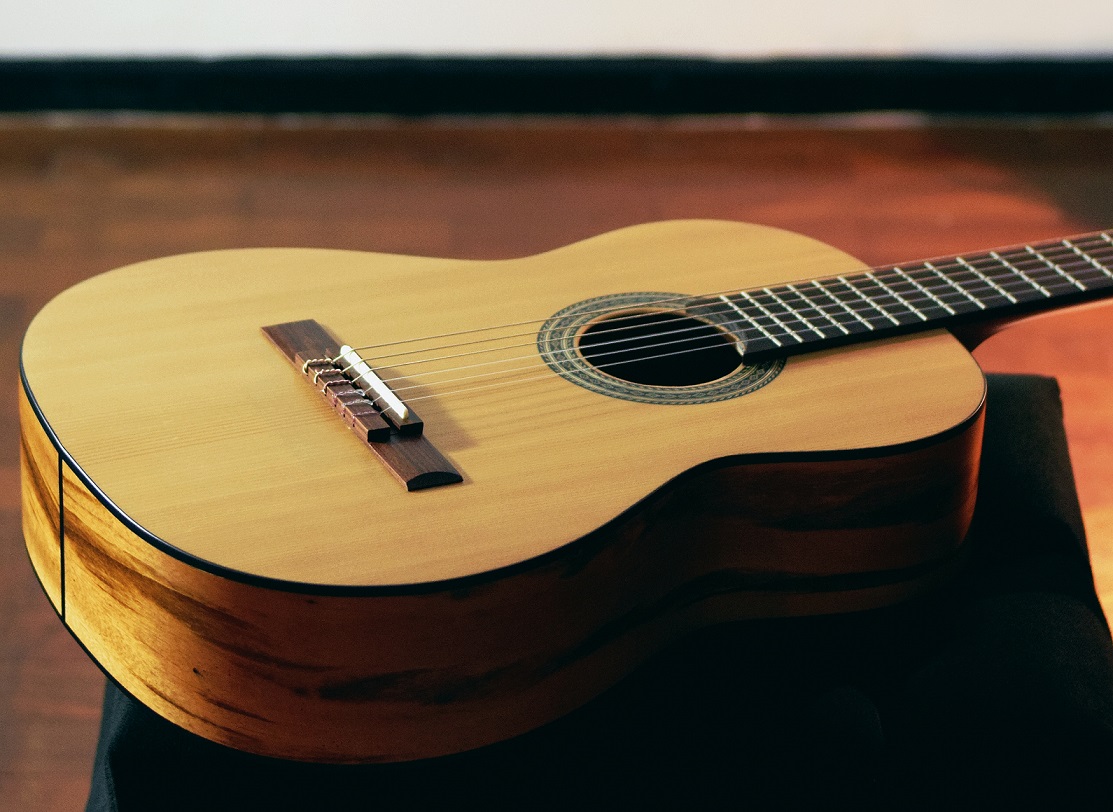
Classical Guitar
What Is A Classical Guitar Best For?
Classical guitars are typically used for playing classical music, flamenco, and other styles of acoustic guitar music. Their design and construction make them well-suited for producing a warm, mellow tone and a wide range of dynamics. Classical guitars are also typically played using fingerstyle techniques, such as plucking and arpeggiating, rather than using a pick. This allows for greater control over the sound and expression of the music. Additionally, the wider neck and lower string action of classical guitars make them easier to play for beginners and those with smaller hands.
Classical guitars are often used in solo performances, chamber music, and as accompaniment to singers or other instrumentalists. They can also be used for playing popular music, but their sound may not be as suitable for certain genres, such as heavy metal or rock. In addition to their musical qualities, classical guitars can also be used for educational purposes. They are often recommended for beginners who are learning to play the guitar due to their ease of playability, which helps to develop proper technique and finger strength. Overall, classical guitars are best suited for playing classical and acoustic music, but they can also be used in a variety of musical settings and for educational purposes.
Furthermore, classical guitars can also be used for recording music, especially in genres that require a more intimate and natural sound. They are often used in studio settings, where the sound can be captured with precision and clarity. In terms of their physical construction, classical guitars are typically made with high-quality materials such as solid wood, which contributes to their rich and warm sound. They also feature a unique bracing system that allows for greater resonance and sustain.
Overall, classical guitars are versatile instruments that can be used in a variety of musical contexts. Their unique sound, ease of playability, and aesthetic appeal make them a popular choice among musicians and guitar enthusiasts alike.
Are Classical Guitars Harder to Play?
Learning to play the guitar can be a challenging and rewarding experience, regardless of the style of music you choose to play. However, many people wonder if classical guitars are harder to play than other types of guitars. In this article, we will explore this question and provide some insights into the unique characteristics of classical guitars.
To begin, it is important to note that the difficulty of playing a guitar depends on several factors, including the skill level of the player, the type of music being played, and the physical characteristics of the guitar. With this in mind, we can consider some of the ways in which classical guitars might be perceived as more challenging to play than other types of guitars.
One of the main differences between classical guitars and other types of guitars is their neck width. Classical guitars have wider necks than electric or acoustic guitars, which can make it more challenging to navigate the fretboard, especially for players with smaller hands. This is because the wider neck makes it more difficult to reach across the strings and hold down chords. However, many players find that with practice, they are able to adapt to the wider neck and develop the necessary hand strength and flexibility to play comfortably.
Another characteristic of classical guitars that can make them more challenging to play is their string action. String action refers to the distance between the strings and the fretboard. Classical guitars typically have higher string action than other types of guitars, which means that the strings are set further away from the fretboard. This can make it more difficult to press down the strings and play notes cleanly. However, high string action can also be beneficial in some ways, such as producing a more resonant and expressive tone.
In addition to the physical characteristics of the guitar, classical guitar music itself can be more challenging to play than other types of guitar music. Classical guitar music often involves complex fingerpicking patterns and requires precise control over dynamics and tone. This can take a lot of practice and patience to master, but can also be incredibly rewarding for those who are up for the challenge.
Despite these challenges, it is important to note that classical guitars are not necessarily harder to play than other types of guitars. Rather, they require a different set of skills and techniques. For example, classical guitarists typically use a different playing technique than electric guitarists. Classical guitarists use their fingers to pluck the strings, whereas electric guitarists often use a pick. This means that classical guitarists need to develop greater finger strength, dexterity, and control in order to produce a clear and expressive sound.
Another factor that can make classical guitars seem more challenging to play is the repertoire of music that is typically played on them. Classical guitar music is often more complex and technically demanding than other types of guitar music, requiring a greater level of precision and accuracy. However, this does not mean that classical guitarists are necessarily better or more skilled than other guitarists. It simply means that they have developed a different set of skills and techniques in order to play the music that they enjoy.
While classical guitars may be perceived as harder to play than other types of guitars, this is largely a matter of perspective. The physical characteristics of the guitar, as well as the techniques and skills required to play classical guitar music, do present some unique challenges. However, with practice and dedication, anyone can learn to play the classical guitar and enjoy the beautiful music that it can produce. Whether you are a beginner or an experienced guitarist, the classical guitar is a versatile and rewarding instrument that is worth exploring.